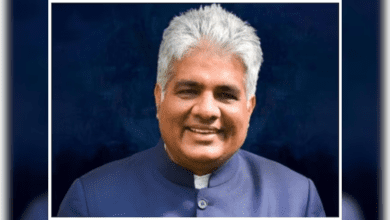It’s time to realize how wasteful everything is
NEW DELHI: Out of the 11,000 metric tons of rubbish produced every day in Delhi, only 8,000 metric tons of solid waste are processed. The Supreme Court expressed dismay at the situation in the national capital and the failure to put the 2016 legislation on solid waste processing into effect.
It is quite concerning. The fact that 3,000 tons of trash are not processed each day is startling.

A bench of Justices Abhay S. Oka and Ujjal Bhuyan said, “It is a very sorry state of affairs,” adding that there are risks to the public’s safety and the environment.
The court declared that the authorities should not authorize the development of residential dwelling units if the issue is not fixed.
Aishwarya Bhati, the additional solicitor general for the Center, informed the bench that although attempts were being made to address the issue, the court should ask local government agencies and the Commission for Air Quality Management (CAQM) in the National Capital Region and Adjoining Areas for their responses.
The bulk of the positions in the nation’s numerous pollution control agencies remain unfilled, as noted by senior lawyer Aparajita Singh, who is supporting the court as an amicus curiae. Singh begged the court to order the states to fill the positions. According to the information that she submitted, the Delhi Pollution Control Board is operating with around 33% of the authorized workforce, with 233 positions open out of a sanctioned strength of 344. Out of the 11,969 total authorized strength, she informed the bench that 6,092 positions remain unfilled in different state pollution control boards.
The Center and the Delhi government were then ordered by the court to have a conference and devise a strategy for handling 3,000 tonnes of solid trash in Delhi. The plan was to be presented on May 13, the day the case was scheduled for a follow-up hearing.
CAQM briefed the bench on the various initiatives it had taken, stating that in order to combat the pollution threat in Delhi, NCR, a multifaceted approach was being adopted, including promoting the use of electric cars and expanding public transportation. According to the report, the NCT of Delhi now has 4,793 charge points and 3,100 battery charging stations. By 2025–2026, these numbers are expected to increase to over 18,000 charging points. 14,867 polluting cars were compounded in 2023, according to the commission.
The public transportation system has a total bus fleet of 7,389 vehicles, of which 1,300 are E-buses. In response, it said that an additional 6,930 E-buses are scheduled to be introduced gradually by 2026 (2,350 in 2024, 1,720 in 2025, and 2,860 in 2026).
In Delhi, almost 11,000 metric tons of municipal solid waste (MSW) are generated every day on average. Approximately 8,000 tonnes of trash processing capacity per day have been developed by MCD so far. The report said that further capacity augmentation of around 7,000 tonne per day is under progress and that, when completed, the combined capacity will be more than enough to handle Delhi’s daily MSW influx.






